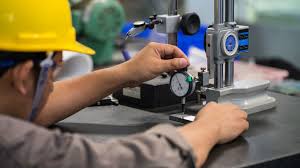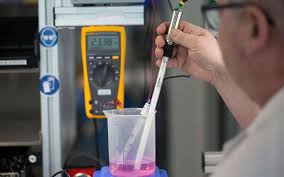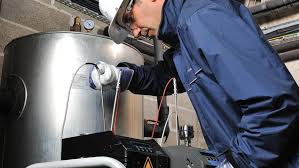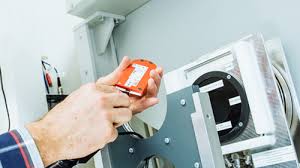Effective Electronic Test Equipment Calibration Services for Accurate Results
Electronic test equipment calibration services are crucial for ensuring accurate and reliable results in various industries. Properly calibrated electronic test equipment plays a crucial role in the quality assurance and compliance of products and processes. In this calibration companies article, we will explore the importance of effective electronic test equipment calibration services in achieving accurate results, and how these services can benefit your business.
Effective electronic test equipment calibration services are critical for ensuring accurate and reliable results in various industries such as manufacturing, automotive, aerospace, and telecommunications. These services involve the meticulous testing and adjustment of electronic test equipment to ensure that they meet the specified technical requirements and operate within acceptable tolerances. Skilled technicians use advanced calibration techniques and state-of-the-art calibration equipment to verify the accuracy of devices such as oscilloscopes, calibration lab multimeters, signal generators, and spectrum analyzers.
By partnering with a reputable calibration service provider, businesses can mitigate the risks associated with using inaccurate test equipment, such as product defects, safety hazards, and non-compliance with industry standards. Properly calibrated test equipment also helps organizations achieve consistent product quality, optimize manufacturing processes, and maintain a competitive edge in the market.
Additionally, accredited calibration services are often required to comply with industry regulations and quality management standards such as ISO 9001, ISO 17025, and ANSI/NCSL Z540-1. These certifications demonstrate that the calibration provider has the technical competence, traceability, and quality management systems in place to deliver reliable calibration services.
In summary, effective electronic test equipment calibration services are essential for ensuring accurate measurements and reliable performance of test equipment. Partnering with a reputable calibration service provider can help businesses achieve compliance, product quality, and operational excellence.
The Importance of Regular Electronic Test Equipment Calibration Services
محتويات المقال

Regular electronic test equipment calibration services are essential for maintaining the accuracy and reliability of electronic testing instruments. Calibration ensures that the measurements provided by the equipment are precise and consistent, minimizing the risk of errors and inaccuracies in testing results. This is particularly important in industries such as manufacturing, aerospace, automotive, and healthcare, where precise measurements are crucial for ensuring product temperature calibration equipment quality, safety, and compliance with industry standards and regulations.
Additionally, regular calibration can help extend the lifespan of electronic test equipment by identifying and addressing any potential issues or drift in performance before they result in more significant problems. It also helps in demonstrating compliance with quality management systems and regulatory requirements.
Furthermore, by opting for regular calibration services, organizations can avoid costly downtime and delays due to inaccurate measurements or equipment failures. This proactive approach can contribute to improving overall operational efficiency and reducing the risk of product recalls or liability issues associated with inaccurate testing results.
In conclusion, regular electronic test equipment calibration services are essential for ensuring the accuracy, reliability, and performance of testing instruments, ultimately contributing to the overall quality, safety, and compliance of products and services in various industries.
Choosing the Right Provider for Electronic Test Equipment Calibration Services

When choosing the right provider for electronic test equipment calibration services, it is important to consider a few key factors. First, look for a provider that is accredited by a recognized organization such as the International Organization for Standardization (ISO) or the American Association for Laboratory Accreditation (A2LA). Accreditation ensures that the provider meets specific quality and technical competence standards.
Additionally, consider the provider’s experience and expertise in calibrating the specific type of electronic test equipment that you use. Look for a provider that has a proven track record in calibrating similar equipment and has a team of skilled technicians who are knowledgeable in the latest calibration techniques and standards.
It is also important to consider the provider’s turnaround time and flexibility in scheduling calibration services. Look for a provider that can accommodate your organization’s needs and minimize downtime of your equipment.
Finally, consider the provider’s customer service and support. Look for a provider that is responsive and reliable, and that offers ongoing support and maintenance for calibrated equipment.
By considering these factors, you can choose the right provider for electronic test equipment calibration services that meets your organization’s needs and ensures the accuracy and reliability of your equipment.
The Benefits of Outsourcing Electronic Test Equipment Calibration Services

Outsourcing electronic test equipment calibration services offers several benefits to companies. First, it allows businesses to focus on their core activities and expertise, freeing up resources that would otherwise be spent on managing in-house calibration processes. Outsourcing also provides access to specialized expertise and technologies, as external service providers are often equipped with the latest tools and knowledge in calibration. Additionally, outsourcing can lead to cost savings, as companies can avoid the expenses associated with maintaining an in-house calibration laboratory, such as equipment, staff, and training. By outsourcing calibration services, companies can ensure compliance with industry standards and regulations, as well as improve the accuracy and reliability of their test equipment, ultimately leading to better quality products and services.
Understanding the Process of Electronic Test Equipment Calibration Services

Electronic test equipment calibration services are crucial for ensuring the accuracy and reliability of electronic testing instruments. The process involves comparing the readings of the equipment to a known standard in order to identify and correct any deviations or errors. This ensures that the equipment is providing accurate and precise measurements, which is critical for industries such as telecommunications, aerospace, and manufacturing.
During the calibration process, trained technicians use specialized calibration equipment and procedures to make adjustments or repairs as needed. They may also provide documentation and certificates to demonstrate that the equipment meets industry standards and regulations.
Regular calibration of electronic test equipment is essential for maintaining the quality and accuracy of measurements. It also helps to prevent costly errors and ensure that products and processes meet regulatory and quality requirements. Calibration services are typically performed by accredited calibration laboratories that have the expertise and resources to calibrate a wide range of electronic test equipment.
Ensuring Accuracy with Electronic Test Equipment Calibration Services

Electronic test equipment calibration services ensure that electronic testing equipment is accurately measuring and reporting data. Calibration involves adjusting and verifying the accuracy of the equipment against a known reference standard. This helps to ensure that measurements taken with the equipment are precise and reliable. Regular calibration is essential for maintaining the accuracy and reliability of electronic test equipment, particularly in industries where precise measurements are critical, such as medical, aerospace, and manufacturing. By using electronic test equipment calibration services, organizations can have confidence in the accuracy of their test results and comply with industry standards and regulations. Calibration services may also include documentation and certification to demonstrate that the equipment meets required standards. Overall, ensuring accuracy with electronic test equipment calibration services is essential for maintaining quality and reliability in testing processes.
Maximizing Performance with Electronic Test Equipment Calibration Services
Maximizing performance with electronic test equipment calibration services involves regular testing and adjustment of electronic test equipment to ensure accuracy and reliability. Calibration services help to maintain the quality and precision of electronic test equipment by identifying and correcting any deviations from the desired performance standards. This helps to minimize errors and ensures that the equipment operates at its best, ultimately leading to improved productivity and accurate testing results. Using professional calibration services can also help to meet regulatory compliance requirements and industry standards, ultimately supporting the efficient and effective operation of electronic test equipment.
Key Factors to Consider When Selecting Electronic Test Equipment Calibration Services
1. Accreditation and certification: Ensure that the calibration service provider is accredited by a recognized accreditation body and holds the necessary certifications, such as ISO 17025. This will ensure that the calibration is performed to the highest standards.
2. Expertise and experience: Look for a calibration service provider with a proven track record of calibrating electronic test equipment. Experience and expertise in calibrating specific types of equipment, such as oscilloscopes, multimeters, or power supplies, is particularly important.
3. Turnaround time: Consider the turnaround time for calibration services. Some providers may offer expedited or on-site calibration services to minimize downtime and maximize the productivity of your equipment.
4. Calibration capabilities: Ensure that the calibration service provider has the necessary capabilities to calibrate all the electronic test equipment in your inventory. This may include specialized equipment or expertise for specific calibration requirements.
5. Compliance with regulations: Verify that the calibration service provider complies with relevant industry regulations and standards, such as ANSI, NIST, or FDA regulations for medical devices.
6. Quality of calibration reports: Review sample calibration reports from the service provider to assess the thoroughness and accuracy of their documentation. Clear and comprehensive reports are essential for maintaining compliance and traceability.
7. Cost and value: Compare the cost of calibration services from different providers, but also consider the overall value. A slightly higher cost may be justified if the provider offers additional benefits such as calibration reminders or equipment management services.
8. Customer reviews and references: Seek out customer reviews and references to gauge the satisfaction of past clients with the calibration service provider’s services. Positive feedback and a strong reputation are indicators of reliability and quality.
Common Mistakes to Avoid When Seeking Electronic Test Equipment Calibration Services
When seeking electronic test equipment calibration services, it is important to avoid certain common mistakes. One mistake to avoid is choosing a calibration service provider solely based on cost. While cost is certainly a factor, it should not be the only consideration. It is important to consider the provider’s reputation, accreditation, and the quality of their calibration services.
Another common mistake is not ensuring that the calibration service provider has the necessary expertise and experience to calibrate the specific type of electronic test equipment being used. It is important to choose a provider that has experience calibrating the specific make and model of equipment, as well as expertise in the relevant industry standards.
Additionally, it is important to avoid neglecting the importance of accreditation when choosing a calibration service provider. Accreditation demonstrates that the provider has met specific standards for competence and impartiality, and can provide confidence in the quality and reliability of their calibration services.
Finally, it is important to avoid neglecting the importance of regular calibration and maintenance of electronic test equipment. Regular calibration helps to ensure the accuracy and reliability of the equipment, and can help to prevent costly errors and downtime.
By avoiding these common mistakes and choosing a reputable, experienced, and accredited calibration service provider, you can ensure the accuracy and reliability of your electronic test equipment.
The Role of Electronic Test Equipment Calibration Services in Industry Compliance
Electronic test equipment calibration services play a crucial role in ensuring that industry compliance standards are met. These services help to maintain the accuracy and reliability of electronic test equipment, which is essential in various industries such as manufacturing, healthcare, aerospace, and automotive. By calibrating equipment to recognized standards, businesses can ensure the quality of their products, comply with regulations, and meet industry requirements. Additionally, regular calibration of test equipment can help to identify and prevent potential issues before they escalate, contributing to improved operational efficiency and cost savings. Overall, the role of electronic test equipment calibration services is integral to maintaining industry compliance and upholding quality standards.
The Future of Electronic Test Equipment Calibration Services
The future of electronic test equipment calibration services is centered around technological advancements and automation. With the continued development of more complex and sophisticated electronic devices, the need for accurate and reliable calibration services is paramount. Additionally, the advent of Industry 4.0 and the Internet of Things (IoT) has also led to an increased demand for electronic test equipment calibration services to ensure seamless integration and functionality across various interconnected devices and systems. Furthermore, the adoption of cloud-based calibration management systems and digital calibration certificates is expected to streamline and simplify the calibration process, making it more efficient and cost-effective for businesses. Overall, the future of electronic test equipment calibration services will undoubtedly be shaped by innovation and technological advancements to meet the evolving needs of industries and ensure the highest level of accuracy and reliability in electronic testing and measurement.


التعليقات مغلقة.